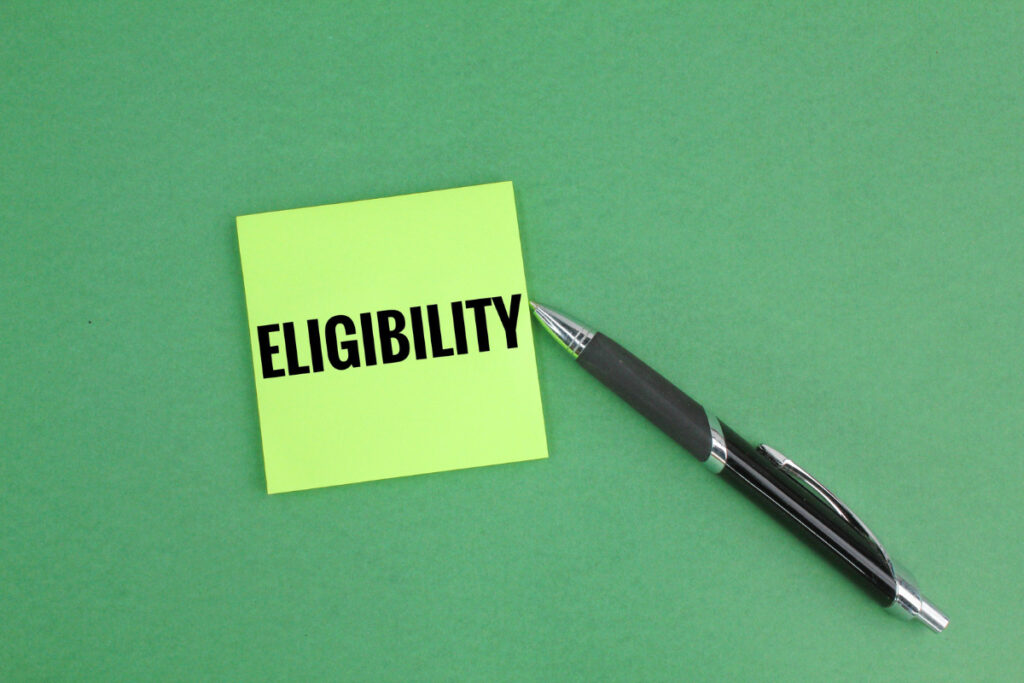Introduction
Are you considering installing solar panels on your home or business and wondering if it’s a tax write-off? You’re in luck! Solar installations not only provide clean, renewable energy but can also offer significant tax benefits for property owners.
In this blog post, we’ll discuss federal and state solar incentives. These savings can impact your finances.
| Key Takeaways |
|---|
| Solar installations offer significant tax benefits for residential and commercial property owners, including the Federal Solar Tax Credit, state-level incentives, energy-efficient property credit, renewable energy tax credit, investment tax credit (ITC), and property tax exemptions. |
| Homeowners must meet certain requirements to be eligible for residential solar tax credits, including using their homes as a primary or vacation residence and having enough taxable income to offset the value of the credit fully. |
| Businesses can take advantage of MACRS depreciation schedules and Section 179 deductions when installing solar panels in commercial properties. Additionally, the Energy-Efficient Commercial Building Deduction allows businesses to deduct up to $1.80 per square foot of qualified energy efficiency improvements made to commercial buildings. |
| Filling out forms accurately with required documentation is essential when claiming solar tax credits and incentives to maximize savings. It may also be helpful working with a qualified tax professional for guidance on eligibility criteria specific to location and installation type. |
Understanding Solar Tax Credits And Incentives
The Federal Solar Tax Credit and various state solar tax incentives, such as the Residential Energy Efficient Property Credit and Residential Renewable Energy Tax Credit, provide homeowners with significant financial benefits for installing solar panels.
Federal Solar Tax Credit
The Federal Solar Tax Credit, or the Investment Tax Credit (ITC), provides a significant financial incentive for homeowners and businesses investing in solar energy systems.
This tax credit enables individuals to deduct up to 30% of the total cost of purchasing and installing a qualifying solar photovoltaic (PV) system from their federal income taxes. Notably, this credit is not limited by an individual’s income or how often they claim the benefit.
Furthermore, the Federal Solar Tax Credit has been extended through 2034 but will see reductions after 2032. Specifically, the tax credit will drop down to 26% in 2033 and further down to 22%. To maximize savings for residential or commercial installations, take advantage of this non-refundable tax credit before these reductions occur.
State Solar Tax Incentives
In addition to federal tax incentives, many states offer solar tax incentives. These vary by state and can include sales tax exemptions, property tax exemptions, and income tax credits.
For example, in Massachusetts, residents who install solar panels can receive a 15% state income tax credit of up to $1,000 per year for 10 years. In California, homeowners can qualify for a property tax exclusion for the value added by installing a solar energy system.
Residential Energy Efficient Property Credit
The Residential Energy Efficient Property Credit is a federal tax credit allowing homeowners to claim up to 30% of the cost of installing renewable energy equipment. This includes solar panels, wind turbines, and geothermal heat pumps.
For example, if a homeowner installs solar panels with a total cost of $20,000 and spends $5,000 on installation costs, they could be eligible for a tax credit worth $6,750 (30% x ($20,000 + $5,000)).
Additionally, the Residential Energy Efficient Property Credit applies to primary residences and second homes but not rental properties.

Residential Renewable Energy Tax Credit
The Residential Renewable Energy Tax Credit is an incentive for homeowners who have installed renewable energy equipment, such as solar panels or wind turbines. The credit allows homeowners to deduct up to 30% of the total qualifying costs from their federal tax liability.
This includes not only the cost of the equipment but also installation fees and related expenses like permits and wiring.
This tax credit has no income limit and can be used until December 31st, 2034. Additionally, unused portions of the credit can be carried over to future years’ taxes.
Solar Investment Tax Credit
Another tax write-off for homeowners who install solar panels is the Solar Investment Tax Credit (ITC). This credit allows eligible taxpayers to deduct 26% of the cost of installing solar energy systems from their federal income taxes.
It is essential to note that this write-off applies to residential and commercial properties and has no cap on its value. Additionally, there are no income restrictions for claiming the ITC; any taxpayer who installs qualifying solar equipment can claim it.
Property Tax Exemption
In addition to federal and state tax credits and incentives, installing a solar energy system may entitle homeowners to property tax exemptions. This means certain jurisdictions will reduce or eliminate the property taxes you owe on your home after adding solar panels.
For example, in California, eligible solar installations can receive an exemption from the full cash value assessment of the added value to the property for up to 20 years.
Overall, going solar can have significant benefits beyond simply saving money on utility bills each month.

Tax Write-Offs For Residential Solar Installations
Homeowners who install solar energy systems in their residences may be eligible for a range of tax credits and deductions, including the Federal Solar Tax Credit and state-specific incentives.
Eligibility Requirements
To be eligible for residential solar tax credits, homeowners must meet specific requirements. First, the home must be a primary or vacation home, not a rental one.
Second, the solar panels must be new and not previously installed to qualify for credit.
Additionally, homeowners must have enough taxable income to fully offset the credit’s value. If they don’t have enough income in that year to claim the total amount of their investment tax credit (ITC), taxpayers may carry forward any excess ITC over 20 years until it is entirely used up.
Tax Credits And Deductions Available
Several tax credits and deductions are available for installing solar energy systems. Here are some of them:
- Federal Solar Tax Credit: Homeowners can deduct 30% of the cost of their solar installation through the federal residential clean energy credit.
- State Solar Tax Incentives: Some states offer incentives and credits, which vary depending on where you live.
- Residential Energy Efficient Property Credit: This credit allows homeowners to claim a percentage of the cost of qualified energy-efficient upgrades, such as solar panels, installed on their homes.
- Residential Renewable Energy Tax Credit: This tax credit allows homeowners to deduct up to 26% of the cost of installing a renewable energy system like solar panels.
- Solar Investment Tax Credit: Business owners can claim a federal investment tax credit (ITC) for up to 30% of the total cost of a solar panel system installation.
- Property Tax Exemption: Some states may exempt residential solar installations from property taxes.
Overall, these tax credits and deductions can help reduce the upfront costs associated with installing a solar energy system, making it more affordable for homeowners and businesses.
Forms And Documentation Needed
Homeowners and business owners must fill out the appropriate forms and provide the necessary documentation. Here are some of the states and documents that may be required:
- IRS Form 5695 – Residential Energy Credits: This form is used to claim the residential energy efficient property credit and the residential renewable energy tax credit.
- Proof of Purchase: Homeowners and business owners must show proof of purchase for their solar panel systems, including receipts or invoices.
- Manufacturer Certification: To qualify for certain federal tax credits, such as the Solar Investment Tax Credit (ITC), solar panels must be certified by the manufacturer as eligible for the credit.
- Property Tax Exemption Application: In some states, homeowners may need to apply for a property tax exemption to receive a reduced property tax rate on their home due to their solar installation.
- MACRS Depreciation Schedule: For commercial installations, the Modified Accelerated Cost Recovery System (MACRS) depreciation schedule must be filled out to claim deductions over several years based on asset depreciation.
- Section 179 Deduction Form: Business owners who install solar panels can also use IRS Section 179 to deduct up to $1,040,000 of qualified equipment purchases from their taxable income.
By filling out these forms correctly and providing all required documentation, homeowners and business owners can maximize their potential savings with solar tax credits and incentives.

Tax Write-Offs For Commercial Solar Installations
For commercial solar installations, businesses can take advantage of MACRS depreciation. They can also read about Section 179 deductions and the Energy-Efficient Commercial Building Deduction. These options offer significant tax savings, so read on.
MACRS Depreciation
MACRS (Modified Accelerated Cost Recovery System) depreciation can be a good tax write-off for commercial solar installations. This method is to depreciate assets for tax purposes over several years and deduct their cost from taxable income.
Businesses can claim a deduction on the cost of solar panel systems with accelerated depreciation. The IRS assigns different recovery periods to equipment. Solar panels have a five-year recovery period and can claim about 20% yearly.
Section 179 Deductions
Business owners who install solar panels in their commercial properties can take advantage of Section 179 deductions. They can deduct the entire cost of solar panel installations up to $1,050,000 annually.
This means businesses can write off the entire solar installation cost on their taxes for the year it was installed instead of depreciating it over several years.
Additionally, this deduction can apply to new and used equipment. It is not limited to only solar panels but also other energy-efficient technology such as HVAC systems and lighting upgrades.
Energy-Efficient Commercial Building Deduction
The Energy-Efficient Commercial Building Deduction is a valuable tax incentive for businesses that install renewable energy systems in their facilities. This deduction allows businesses to deduct up to $1.80 per square foot of the property’s floor space for qualified energy efficiency improvements to commercial buildings.
For example, if a business installs solar panels on its commercial building and upgrades its HVAC system for improved energy efficiency, it could qualify for this deduction.
Eligibility And Documentation Needed
Understanding the eligibility requirements and necessary documentation to claim tax write-offs for residential and commercial solar installations is important. For residential installations, homeowners must own their homes and have a qualifying solar energy system installed.
Documentation needed includes proof of purchase, installation costs, payment receipts, warranties, and manufacturer specification sheets.
For commercial solar installations, businesses must meet specific criteria regarding project size and type of equipment used.
By working with a qualified tax professional, individuals can ensure the accurate completion of forms when claiming tax credits. This can result in significant tax savings in the future.

How To Claim Solar Tax Credits And Deductions
Homeowners should work with a tax professional to claim solar tax credits and deductions. The tax professional should be well-versed in renewable energy tax incentives. Homeowners should file for federal and state tax incentives accordingly and understand carryover options.
Working With A Tax Professional
Tax laws can be complex. Working with a tax professional when claiming solar tax credits and deductions is highly recommended. A tax professional can assist in claiming the maximum credit for your solar project. They can identify eligible incentives, calculate them accurately, and advise on carryover options.
They will also keep up-to-date with any changes or updates in relevant laws that could impact your eligibility. Moreover, when working with a knowledgeable professional, you may find other ways to save on taxes beyond just solar energy systems.
Filing For Federal And State Tax Incentives
Homeowners and business owners must follow a few steps to claim federal and state tax incentives for installing solar energy systems. Here’s how to file for the tax incentives:
- First, determine your solar tax credits or incentives eligibility.
- Gather all necessary forms and documentation for your solar panel system installation.
- Work with a qualified tax professional familiar with renewable energy tax incentives and credits.
- File your taxes typically, including any relevant forms and documentation related to your solar installation.
- Claim the solar tax credit or incentive on federal and state income tax returns.
- Ensure you understand carryover options if you can’t use all the credit in one year.
Homeowners and business owners can ensure they are claiming all eligible federal and state incentives for their solar panel system installations by following the steps. Use the solar tax credit to reduce income tax liability. But remember, it is non-refundable. Keep thorough records of installation costs. Work with a qualified professional for the best results.
Understanding Carryover Options
The federal Residential Renewable Energy Tax Credit allows homeowners to carry forward any excess credit for up to five years. If you don’t use all of your solar tax credits in the year you install your system, don’t worry! You can carry over any unused credits to future years.
For example, if your solar installation qualifies you for a $5,000 tax credit but you only owe $4,000 in taxes that year, you can pay the remaining $1,000 and apply it towards future tax liabilities.
Conclusion
In conclusion, installing solar panels is eco-friendly and saves money on taxes. You can reduce your tax liability through federal and state incentives. Eligibility requirements and documentation vary by location and installation type. Work with a qualified tax professional to maximize your savings. Going solar is a wise financial decision and benefits the environment.
Going solar?
Are you interested in learning more about how solar installations can provide significant tax benefits for your home or business? Look no further than DroneQuote’s blog posts.
If you have any questions about going solar, DroneQuote is here to help. As a trusted solar partner, we can provide expert advice and guidance to help you make the most of your renewable energy investment.

FAQs
- Can I get a tax write-off for installing solar panels on my home or business?
The federal government offers a solar investment tax credit (ITC). This allows individuals to deduct up to 30% of the cost of their solar energy systems from their federal taxes. Some states also offer additional incentives such as rebates and credits.
- How much money can I save with a solar tax write-off?
The amount you can save depends on several factors, including your system’s size, installation cost, and your individual tax situation. However, receiving thousands of dollars in savings through the federal ITC alone is possible.
- Is there a deadline for claiming the solar tax credit?
Yes, the federal ITC is scheduled to begin phasing out after December 31st, 2032, with yearly reductions.
- Do I need professional help when claiming my solar investment tax credit?
While it’s not mandatory, consulting certified public accountants or financial professionals familiar with these deductions is advisable. Dosing so will maximize potential benefits and ensure compliance with all necessary IRS regulations.

[…] installing solar panels on your property to generate renewable energy and reduce reliance on the […]
[…] determine if going solar aligns with your budget and long-term goals. This can also look into your benefits and advantages when you apply for solar […]